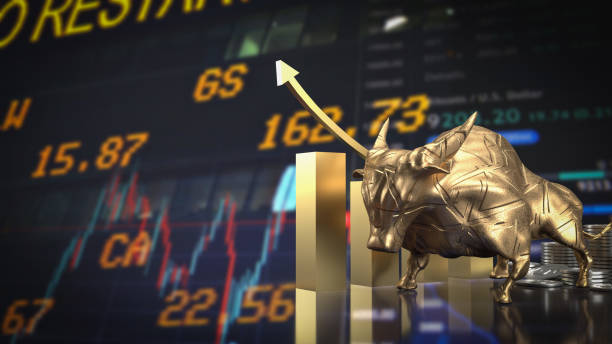Key Characteristics of Cyclical Stocks
Cyclical stocks are highly sensitive to fluctuations in the business cycle, often experiencing significant highs and lows in tandem with economic conditions. These stocks are typically tied to industries that rely heavily on consumer spending, such as automotive, retail, and technology sectors. Companies in these sectors tend to see increased profits during economic upswings but can struggle during periods of economic downturn.
Investors in cyclical stocks must be prepared for heightened volatility and the potential for significant capital gains or losses. Timing plays a crucial role in investing in cyclical stocks, requiring astute market analysis and a willingness to adapt to changing economic conditions. While these stocks can offer substantial returns during economic expansions, they also carry a higher level of risk compared to defensive stocks.
Options are a versatile financial instrument that allows investors to profit from fluctuations in the price of underlying assets. By purchasing options, traders have the right, but not the obligation, to buy or sell assets at a predetermined price within a specified time frame. This flexibility can be particularly advantageous for investors looking to hedge their portfolios or speculate on market movements. For those interested in exploring the world of options trading, consider downloading the Sky App for a user-friendly platform to start your journey. With options, traders have the potential to capitalize on market volatility and generate substantial returns.
Key Characteristics of Defensive Stocks
Defensive stocks are known for their stability and resilience in times of economic uncertainty. These companies typically operate in industries that are less sensitive to changes in the business cycle, such as healthcare, utilities, and consumer staples. Their products and services are considered essential, making demand relatively consistent regardless of economic conditions.
Investors are drawn to defensive stocks for their reliable dividends and consistent earnings, which can provide a level of protection during market downturns. While defensive stocks may not offer the same level of growth potential as cyclical stocks, they are valued for their defensive nature and ability to weather economic storms.
Factors Influencing Cyclical Stocks
Cyclical stocks are particularly sensitive to changes in the overall economy, as their performance tends to closely align with economic cycles. One major factor influencing cyclical stocks is consumer spending habits. During times of economic growth, consumers tend to have higher disposable income, leading to increased spending on big-ticket items such as automobiles, luxury goods, and travel. This uptick in consumer spending directly impacts cyclical stocks in sectors like retail, automotive, and leisure.
Another key factor that influences cyclical stocks is the state of the housing market. When housing prices are rising and demand for new homes is strong, industries such as construction, home improvement, and real estate tend to perform well. This positive momentum in the housing market can boost the performance of cyclical stocks in these sectors. Conversely, a slowdown in the housing market can have a negative impact on cyclical stocks tied to the housing sector.
Commodity trading app, when it comes to investing in cyclical stocks, having access to the right tools and resources is essential. One way to stay ahead in the market is by using a reliable commodity trading app that can provide real-time data and analysis. With the help of a commodity trading app, investors can easily track the performance of cyclical stocks in sectors like retail, automotive, and leisure, and make informed decisions based on market trends. By staying informed and utilizing the latest technology, investors can navigate the ups and downs of the economy and maximize their returns.
Factors Influencing Defensive Stocks
Defensive stocks are often influenced by macroeconomic factors that can impact their performance. In times of economic uncertainty or market downturns, investors tend to flock towards defensive stocks due to their resilient nature. The stability and predictability of defensive stocks, such as utilities, consumer staples, and healthcare companies, make them attractive options for risk-averse investors seeking steady returns.
Moreover, factors like interest rates, inflation, and consumer sentiment play a significant role in influencing defensive stocks. Lower interest rates and stable inflation levels can benefit defensive sectors, as they often rely on consumer spending and demand. Additionally, defensive stocks tend to outperform during periods of market volatility or economic downturns, as investors seek out safer investment options to weather the storm.
Performance During Economic Cycles
Cyclical stocks tend to perform well during periods of economic expansion when consumer spending is robust and business activity is flourishing. These stocks are often tied to industries that are highly sensitive to changes in the economic environment, such as technology, industrials, and financial services. As the economy grows, these sectors typically experience increased demand for their products and services, leading to higher revenues and profits for cyclical companies.
On the other hand, defensive stocks tend to outperform during economic downturns or periods of market volatility. These companies are often found in sectors such as healthcare, utilities, and consumer staples, which provide essential products and services that consumers continue to need regardless of the economic climate. During times of economic uncertainty, investors often flock to defensive stocks as a safe haven to protect their portfolios from market fluctuations.
Demat Account is an essential tool for investors looking to navigate through different economic cycles. Whether you are investing in cyclical stocks that thrive during periods of economic expansion or defensive stocks that outperform during economic downturns, having a Demat Account can help you manage your investments efficiently. With the convenience of online trading platforms like Demat Account, investors can easily buy and sell securities, track their portfolio performance, and stay updated on market trends, all in one place. By opening a Demat Account, investors can take advantage of the opportunities presented by different economic cycles and build a diversified investment portfolio tailored to their financial goals.
Risk Considerations for Cyclical Stocks
Cyclical stocks are known for their sensitivity to economic conditions, making them inherently risky investments. During downturns or recessions, companies in cyclical sectors such as consumer discretionary, technology, and industrial may experience a decline in demand for their products or services, leading to decreased revenues and profitability. This cyclicality can result in significant price volatility for cyclical stocks, as investor sentiment fluctuates with changing economic trends.
Additionally, cyclical stocks are highly dependent on the overall health of the economy, making them susceptible to factors such as interest rates, inflation, and consumer spending patterns. Any adverse developments in these areas can impact the performance of cyclical stocks and exacerbate their risk profile. Investors considering exposure to cyclical stocks should carefully assess their risk tolerance and diversification strategy to mitigate the inherent uncertainties associated with these investments.
Risk Considerations for Defensive Stocks
When considering defensive stocks as part of an investment portfolio, it is important to recognize that while they may provide stability during market downturns, they typically offer lower growth potential compared to cyclical stocks. This lower growth potential can result in reduced returns during times of economic expansion, making it crucial for investors to carefully assess their risk tolerance and investment goals when incorporating defensive stocks into their portfolios.
Another risk consideration to keep in mind with defensive stocks is their sensitivity to interest rate changes. These stocks are often sought after for their reliable dividend payments, which can become less attractive to investors if interest rates rise, causing the value of these stocks to decline. Investors should stay informed about monetary policy decisions and economic indicators that may impact interest rates and adjust their defensive stock holdings accordingly to mitigate this risk.
Investor Strategies for Cyclical Stocks
Investors looking to capitalize on cyclical stocks should consider a proactive approach to trading, adjusting their positions in line with the economic cycle. Timing plays a crucial role in investing in cyclical stocks, as entering a position at the right stage of the cycle can significantly impact returns.
Moreover, diversification is key when considering cyclical stocks, as spreading investments across different industries can help mitigate risks associated with economic fluctuations. By closely monitoring economic indicators and company performance, investors can make informed decisions on when to buy or sell cyclical stocks, maximizing their potential returns in this segment of the market.
HDFC Sky by HDFC Securities is a great platform for investors looking to capitalize on cyclical stocks. With a proactive approach to trading, investors can adjust their positions in line with the economic cycle, maximizing their potential returns. Timing is crucial when investing in cyclical stocks, and entering a position at the right stage of the cycle can significantly impact returns. Moreover, diversification is key when considering cyclical stocks, as spreading investments across different industries can help mitigate risks associated with economic fluctuations. By closely monitoring economic indicators and company performance, investors can make informed decisions on when to buy or sell cyclical stocks, ultimately optimizing their portfolio. Check out HDFC Sky by HDFC Securities for more information on how to strategically invest in cyclical stocks.
Investor Strategies for Defensive Stocks
Investors looking to allocate their portfolio towards defensive stocks should consider a few key strategies. Firstly, focus on companies with stable revenues and earnings, as these are less likely to fluctuate during economic downturns. Additionally, prioritize industries that are less sensitive to changes in the business cycle, such as utilities and consumer staples. By choosing defensive stocks with these characteristics, investors can better weather market volatility and economic uncertainties.
Another strategy for investing in defensive stocks is to seek out companies with strong balance sheets and low debt levels. These companies are better positioned to withstand challenging economic conditions and maintain their dividends even when times are tough. Furthermore, diversification is key when building a defensive stock portfolio, as spreading investments across different sectors and industries can help mitigate risk and provide more stable returns over the long term.
Conclusion and Recommendations
In conclusion, understanding the key characteristics and factors influencing cyclical and defensive stocks is essential for investors seeking to navigate the dynamic nature of the stock market. Cyclical stocks tend to perform well during economic upturns but are prone to volatility during downturns, while defensive stocks offer stability but may underperform in strong economic conditions. Evaluating risk considerations such as industry trends, company performance, and economic indicators is crucial for making informed investment decisions across both types of stocks.
Investors should consider adopting a diversified portfolio approach that includes a mix of cyclical and defensive stocks to mitigate risk and capitalize on various market conditions. Additionally, staying informed about macroeconomic trends, company-specific developments, and industry dynamics can help investors react swiftly to changes in the market. By incorporating a blend of research, strategic planning, and a long-term perspective, investors can enhance their chances of achieving sustainable returns in the ever-evolving stock market landscape.


